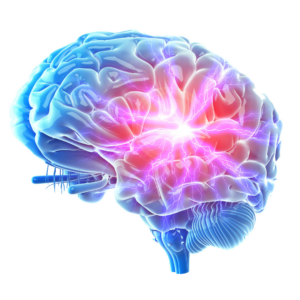
I recently came across a research paper that found a link between childhood trauma and adult headache disorders. A comprehensive meta-analysis detailed in the October 2023 issue of Neurology suggested that people who have experienced childhood trauma are significantly more likely to experience various types of headaches as adults (Sikorski et al., 2023). This was a statistically significant association that intrigued me.
The meta-analysis synthesized data from 28 studies encompassing 154,739 participants across 19 countries. Thirty one percent of participants reported having experienced at least one traumatic event in childhood. Twenty six percent of participants with a history of childhood trauma experienced headache disorders, compared to 12% among participants without a history of childhood trauma. One of the most striking findings was that participants with one or more traumatic childhood events were 48% more likely to suffer from headache disorders compared to those without such experiences. Additionally, as the number of traumatic events increased, so did the risk of developing headaches. Authors noted that individuals with four or more types of traumatic experiences were more than twice as likely to develop headache disorders.
This meta-analysis strongly implies that childhood traumatic events have serious health implications later in life.
The research separated childhood traumas into two broad categories: threat traumas and deprivation traumas. Threat traumas included physical, sexual, and emotional abuse, witnessing violence, and family conflicts. Deprivation traumas involved neglect, economic hardship, having an incarcerated family member, parental divorce or death, and living with household issues such as mental illness or substance abuse.
Data analysis found that threat traumas were associated with a 46% increase in headache disorders, whereas deprivation traumas were linked to a 35% increase. Among specific trauma types, physical and sexual abuse were associated with a 60% increased risk for headaches, and childhood neglect was linked to a three-fold increase in the risk of developing headache disorders.
This meta-analysis strongly implies that childhood traumatic events have serious health implications later in life; they are poised as a harbinger for migraines, tension headaches, cluster headaches, and chronic headaches for adults.

We can make sense of these results by referring to other empirical findings within the traumatology literature that suggest a relationship between child abuse and structural and functional changes in the brain (Teicher & Samson, 2016). In fact, MRI studies have shown shrinking or narrowing parts of the brain that are responsible for stress response in participants with childhood trauma histories (Begemann et al., 2023). With this information in mind, it seems likely that early childhood stress may be related to long term alterations in the sympathetic nervous system and the HPA Axis, which is the primary stress response pathway involved in migraines (Peres et al., 2001).
Taken together, this research highlights childhood trauma as meaningfully impactful on a person’s physical health in the future, not just their psychological health. Early intervention and mental health resources are a critical lever for mitigating the adverse long term effects on individuals’ physical and emotional health and well-being.
About Us
At Center Psychology Group in New York, we specialize in providing compassionate and evidence-based therapy tailored to your unique needs. Whether you’re seeking EMDR therapy, Somatic Experiencing, or integrative trauma-informed psychotherapy, our experienced team is here to support you. Learn more about our services and how we can help you on the path to healing. Ready to take the next step in your healing journey? Book a free 15-minute phone consultation here.






